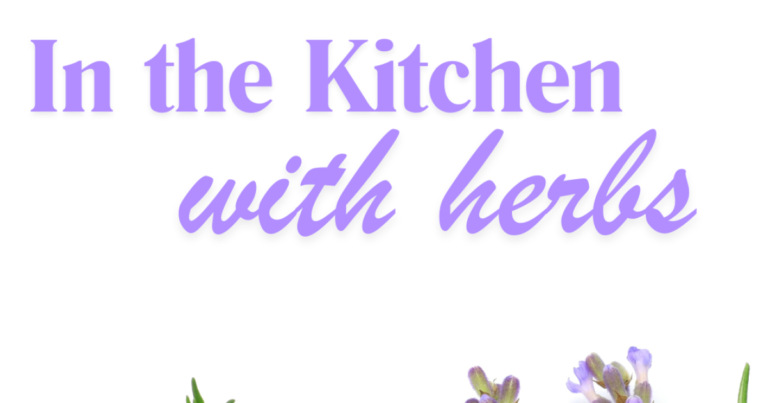Gardening season is upon us, and if you're new to gardening, why not try growing herbs? Culinary herbs are a favorite of many gardeners. They're easy to grow, requiring little maintenance and with few insect or disease problems. National Herb Week takes place every May, making it the perfect time to plant these fragrant, flavorful plants in your garden beds or in pots on your patio. Herbs have been used for thousands of years in herbal remedies, as linen repellents, as air fresheners, and of course, in cooking.
First, let's talk about the classification of cuisines. Herbs can be classified as robust herbs and fine herbs (mild herbs). Robust herbs are full-bodied and full of flavour and are often used alone or mixed with other herbs. Robust herbs can withstand cooking and can be used in dishes such as roasting, braising and grilling. Herbs such as rosemary, thyme, sage and garlic are classified as robust herbs.
Fine herbs blend well with other herbs and become milder when cooked. They are often added at the end of cooking. Fine herbs are used in salads or eaten raw. Dill, basil, coriander, and parsley are considered mild and fine herbs. The tender stems of coriander and parsley have a pungent flavor and are safe to use and are best used with whole herbs.
Secondly, herbs are a tasty alternative to salt and may have other health benefits. Limiting sodium in your diet is one way to lower your blood pressure. In last week's episode, we talked about ways to lower your blood pressure. This is important because about half of Americans have high blood pressure. Remember, you can easily make salt-free seasoning blends at home. Whether you're searing meats, roasting vegetables, or mixing drinks, it's best to have a variety of fresh and dried herbs on hand to enhance flavor.
Herbs are high in antioxidants, and a recent study by the Agricultural Research Service found that oregano had the highest antioxidant activity. Antioxidants help keep your immune system strong and reduce your risk of chronic disease. Sweet bay, dill, and winter savory are also good sources of antioxidants. These flavorful herbs are delicious added to egg dishes, soups, and seasoning blends.
Finally, fresh herbs are easy to maintain in the garden and can be easily stored with a few simple steps. To make freshly cut herbs last longer, soak them in a glass of water, cover loosely with a plastic bag and place them in the fridge. Remember to change the water daily. You can also store herbs wrapped in a damp paper towel in a plastic bag in the fridge. This works well for cilantro, parsley, etc. However, basil should not be stored in the fridge as it will develop black spots.
The traditional way to preserve herbs is to air dry or dry them at low temperatures. Drying concentrates the flavor of the herb, so you may need to use only one-third to one-quarter of the amount of fresh herb in a recipe. Once the herbs are dry, remove the leaves from the stems and store them in an airtight container in a cool, dark place. To fully preserve the flavor of the herb, do not crush the leaves when packaging. Ideally, herbs should be crushed just before adding them to a recipe. If properly stored, most herbs will retain their flavor for about a year. IL Extension has many resources on herbs, so if you need help with your herb garden or tips on preserving and cooking with them, contact your local Extension office.
Try adding some new herbs to your meals this week. Whether it's a salad, a veggie dip, or a tea, there's an herb for every dish and every taste. Plant your own herbs and use them in every part of your cooking to enjoy herbs all year round.
Looking for the perfect herbs for your garden this summer? Visit wvik.org/wellness for more information and to watch a recording of today's episode.
Thank you for watching. I hope you all have a happy and healthy day. Content for this episode was provided by Lisa Peterson, Nutrition and Health Educator, University of Illinois Extension.


